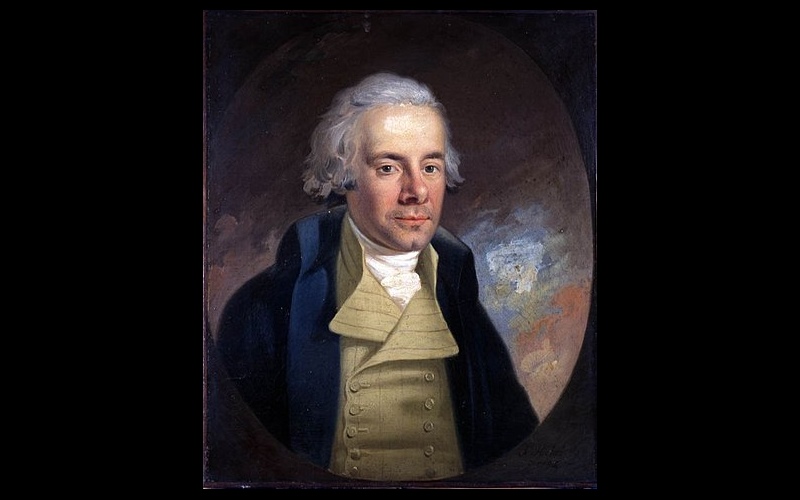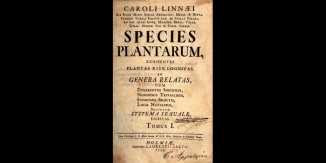217 years ago today, the Slave Trade Act of 1807 entered into force in Great Britain, abolishing the British participation in the Transatlantic Slave Trade and pressed other nation states to abolish their own slave trades. Sometimes in history, the abandonment of a previous widespread practice occurs naturally after its practice diminishes, but the Slave Trade Act was passed at a time when slavery was still an incredibly lucrative business, demonstrating, at least partially, the resolve of the abolitionists in Britain who lobbied and campaigned for 18 years for a bill. READ more… (1807)

The Committee for the Abolition of the Slave Trade was formed in 1787 by a group of Evangelical English Protestants allied with the Quakers, to unite in their shared opposition to slavery and the slave trade.
Worrying that the outright abolishment would be ineffectual, anti-slavery MP William Wilberforce had guided the passage of a gradual ending of the slave trade back in 1792. Three weeks after the vote, another powerful politician named Henry Dundas tabled resolutions setting out a plan to implement gradual abolition by the end of 1799. At that time, he told the House that proceeding too quickly would cause West Indian merchants and landowners to continue the trade “in a different mode and other channels.”
After the Acts of Union which brought another 100 members into Parliament, most of whom supported abolition, they pressed on.
The Bill was first introduced to Parliament in January 1807. On 23 February 1807, twenty years after he first began his crusade, Wilberforce and his team were rewarded with victory. After a debate lasting ten hours, the House agreed to the second reading of the bill to abolish the Atlantic slave trade by an overwhelming 283 votes for to 16. The Bill received Royal Assent by King George III on 25 March 1807. The Act took effect on 1 May 1807.
MORE Good News on this Day:
- Samuel Morse sent the first message by telegraph (1844)
- Reconstruction began in The South, opening voter registration to African-Americans (1867)
- Aspirin was introduced in Germany by Bayer (1889)
- On the third day of Los Angeles riots in response to a verdict in the Rodney King beating trial, King appealed for calm: “People, I just want to say, can we all just get along?” (1992)
- The Europe Union welcomed as members Estonia, Hungary, Latvia, Lithuania, Poland, Slovenia, Slovakia, and the Czech Republic âback from Communist rule â and Cyprus and Malta (2004)
- Today is the 19th annual Global Love Day, with governors and mayors joining people in 145 countries to celebrate humanity and calling for unconditional love throughout the entire day (2004)
- Sweden legalized same-sex marriage (2009)
271 years ago today, publication of the Species Plantarum marked the formal beginning of the plant taxonomy, which would later be adopted by the International Code of Plant Nomenclature. The tome was published by Swedish botanist Carl Linnaeus, who has been called the “Pliny of the North,” as well as “Princeps botanicorum,” and who famous Swedish author August Strindberg called “a poet who happened to become an ecologist.” Such is the admiration for Linnaeus’ pioneering work that the abbreviation L. is used in scholarship to denote that the authority for a plant comes from him.

Species Plantarum was the first botanical work to consistently apply the binomial nomenclature system of naming to any large group of organisms. Prior to this work, a plant species would be known by a long polynomial, such as Plantago foliis ovato-lanceolatis pubescentibus, spica cylindrica, scapo tereti (meaning “plantain with pubescent ovate-lanceolate leaves, a cylindrical spike and a terete scape”) or Nepeta floribus interrupte spicatis pedunculatis (meaning “Nepeta with flowers in a stalked, interrupted spike.”)
In Species Plantarum, these cumbersome names were replaced with two-part names, consisting of a single-word genus name, and a single-word specific epithet or “trivial name”; the two examples above became Plantago media and Nepeta cataria, respectively. On a side note, in his tenth edition of Systema Naturae, Linnaeus applied the same binomial system to animals for the first time.
Species Plantarum contained descriptions of the thousands of plant species known to Linnaeus at the time. In the first edition, there were 5,940 names. (1753)
72 years ago today, Hasbro debuted Mr. Potato Head in America. It may seem, without the influence of the Toy Story movies, a trivial invention, but the kits which allowed kids to interchange different facial features onto an actual potato, sold more than a million copies in the first year.Â

Some speculate that Brooklyn-born toy inventor George Lerner got the idea from his wife’s nephew Aaron Bradley, who was seen placing sticks inside of potatoes in the family garden. Lerner would often take potatoes from his mother’s garden and, using various other fruits and vegetables as facial features, he would make dolls with which his younger sisters could play.
The original design of an actual potato, with the facial features being made by other vegetables, was controversial, but not for the reason you might imagine. With World War II and food rationing a recent memory for most Americans, the use of fruits and vegetables to make toys was considered irresponsible and wasteful, and many toy companies rejected the idea.
The rights were eventually picked up by the Hassenfeld Brothers (Hasbro) for $5,000. Lerner was offered an advance of $500 and a 5% royalty on every kit sold. The toy was named Mr. Potato Head and went into production on May 1, 1952.
In 1953, a Mrs. Potato Head variant was added, and soon after, Brother Spud and Sister Yam completed the family, followed by accessories reflecting the affluence of the 1950s: a car, boat trailer, kitchen set, stroller, and pets marketed as Spud-ettes. (1952)
238 years ago today, Mozart’s first opera, The Marriage of Figaro, premiered at the Burgtheater in Vienna. Its momentous music beneath lighthearted comedy didn’t connect with audiences, and it closed after only nine performances. Yet, in theaters today, it is one of the most frequently performed operas of all time.

Composed by Wolfgang Amadeus Mozart, with an Italian script (libretto) written by Lorenzo Da Ponte, the 4-act opera recounts the story of how the servants Figaro and Susanna succeed in getting married, foiling the efforts of their philandering employer to seduce Susanna, while teaching him a lesson in fidelity.
WATCH the inspiring scene from Shawshank Redemption when a prisoner plays the longingly beautiful duet Sull’aria… (1786)
And, 138 years ago today, the first âMay Dayâ was organized for labor unions around the world to demand better working conditions and world peace.

Also known as International Workersâ Day, it celebrates the achievements of the international labor movement. An eight-hour workday was demanded by the Federation of Organized Trades and Labor Unions in the U.S. and elsewhere. Beginning May 1, it staged a general strike. Riots broke out, but they did eventually achieve the official sanction of the eight-hour day. (1886)
74 years ago today, writer Gwendolyn Brooks became the first black person (her preferred term) to win a Pulitzer prize.The quintessential Chicago poet published her first poem at the age of 13âby age 16 sheâd published 75.

Her second book of poems, the Pulitzer-winning Annie Allen, focused on the life of an inner city girl in the neighborhood where Brooks grew up. She said, âI lived in a small second-floor apartment at the corner, and I could look first on one side and then the other. There was my material.â (1950)

And, 46 years ago today, a Japanese adventurer did alone what had previously been achieved only with large teamsâNaomi Uemura became the first man ever to reach the North Pole solo. He almost gave up twice. On the fourth day of his trek, a polar bear invaded his camp, ate his supplies, and poked his nose against the sleeping bag where Uemura lay tense and motionless.
Mr. Uemura, who was also the first man ever to raft the Amazon alone, said of his 57-day Arctic push, âWhat drove me to continue was the thought of countless people who had helped and supported me.â He also wrote adventure books for Japanese children and was known as a modest, gentle, self-effacing man who cared about others. He was also the first man ever to climb Denali solo, but disappeared, at age 43, on another attempt to climb that mountain in the winter. (1978)

Happy Birthday to the uniquely whimsical film director and writer Wes Anderson, who celebrates 55 years today. Born in Houston, he befriended actor Owen Wilson while studying at the University of Texas, and Wilson went on to star in 8 of Wesâs motion pictures, while earning an Oscar nomination for Best Original Screenplayâfor co-writing The Royal Tenenbaums with Wes, who was known for his witty dialogue. The Grand Budapest Hotel received nine Academy Award nominations in 2014 and won fiveâthanks to the invariably gorgeous production design, costumes, and original score.
He cast Jason Schwartzman as the lead in Rushmore when he was an unknown actorâand later in 6 more films, including The Darjeeling Limited and Moonrise Kingdom. Bill Murray has also appeared in each of these filmsâa total of 9, to date. Anderson has been nominated for 7 major Oscars himself, including Best Director and Best Picture for Budapest Hotel, and Best Animated Feature for Fantastic Mr. Foxâwith George Clooney voicing the wily foxâand Isle of Dogs in 2018. WATCH the Top 5 Signs You’re Watching a Wes Anderson Movie… (1969)
Share the Milestones, Memories, and Music…

